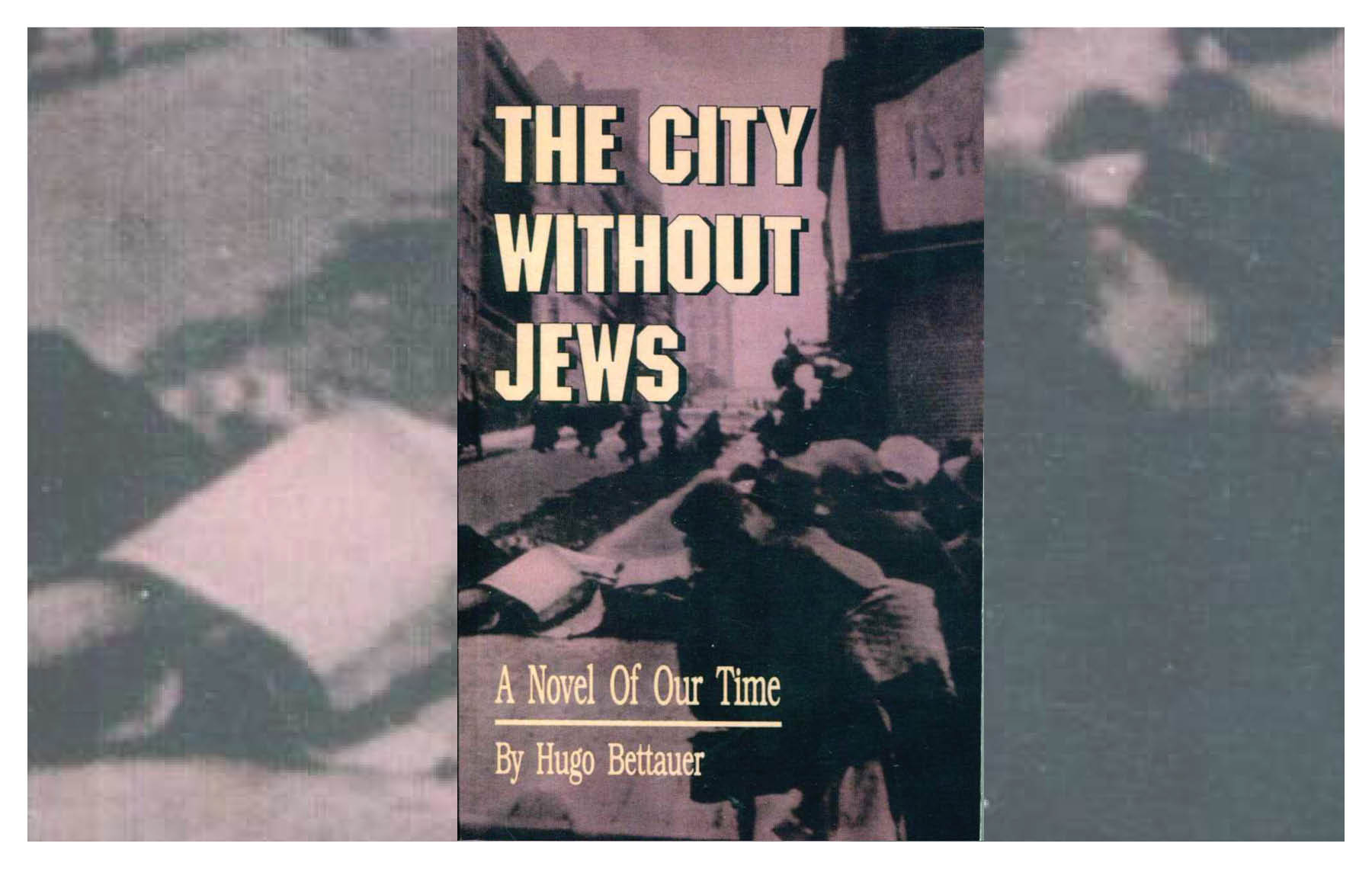
Wilshire Boulevard Temple will host a special screening of the Los Angeles premiere of “The City Without Jews,” a long-lost, recently restored 1924 Austrian silent film, featuring live accompaniment on the temple’s magnificent, 4,102-pipe Korn Kimball organ.
This film could not be more timely (alas). The increase of anti-Semitic incidents in England, France, Hungary and Poland has prompted many Jews to consider emigrating from those countries. And this November will mark the 80th anniversary of Kristallnacht, when Nazi supporters rampaged against Jewish houses of worship, businesses, homes and citizens in Germany and Austria.
“The City Without Jews” holds many surprises, including the story of its rediscovery, restoration and, most importantly, its message: that a city that loses its Jewish population will regret doing so and be worse off for having done so.
“Die Stadt ohne Juden” (The City Without Jews) was based on Austrian-born writer Hugo Bettauer’s best-selling satirical novel. In the 1920s, even before Hitler published “Mein Kampf,” anti-Semitism flourished in Vienna, where Bettauer lived, to the shock of its assimilated Jewish luminaries such as groundbreaking psychiatrist Sigmund Freud, and writers Arthur Schnitzler and Stefan Zweig.
Bettauer wrote “The City Without Jews” as a satire, and Hans Karl Breslauer directed the film as a comedy. However, many of the scenes in the black-and-white film now seem eerily prescient. A fanatical anti-Semite comes to power, and seeing the influence of Jews everywhere, decides to pass laws to expel them. Chillingly, there are scenes of Jews being put on trains headed for “the East” or marched out of the city. However, once gone, the Jews are much needed and much missed. In what passes for a happy ending, even the anti-Semitic politician admits the Jews are “a necessary evil.”
“Chillingly, there are scenes of Jews being put on trains headed for “the East” or marched out of the city.”
The film opened in 1924 to great popularity in Berlin, Vienna and New York. However, several screenings in Austria were disrupted by National Socialist Party members (Nazis) throwing stink-bombs. In Linz, Austria, the film was banned.
The film disappeared and was thought to be lost because many silent films of the era weren’t kept or preserved. When the Nazis came to power, they burned books and destroyed films by Jews or those which were critical of their anti-Semitic policies. For 90 years, the film remained lost.
However, a chance discovery of a complete copy of the film at a Paris flea market by a film collector in October 2015 returned a badly damaged “The City Without Jews” to public attention.
The Filmarchiv Austria (Austrian Film Archive), recognizing a lost gem of significant cultural and historic importance, launched its largest ever crowdfunding campaign in late 2016 to restore the film, meeting its goal of 75,500 euros (approximately $87,000). At the time, The Guardian newspaper in the United Kingdom reported the Austrian Film Fund as saying that “A major donation from an anonymous Jewish foundation in the U.S. after Donald Trump’s election victory and a doubling of daily donations after the defeat of a right-wing populist candidate in the Austrian presidential election had boosted its cause.” The 80-minute film was meticulously restored.
The film resonates on many levels, amid nationalist politics, xenophobia and the rise of neo-Nazis worldwide.
Bettauer, author of the original novel, although born Jewish, had converted to the Evangelical Church in 1890. Nonetheless, after the success of the film, Bettauer was murdered in early 1925 by an ardent Nazi supporter who, after being tried for the crime, was sent to a psychiatric clinic from which he was released 18 months later. Yet “The City Without Jews” has managed to survive to be seen again by a new generation.
“City Without Jews” will screen at 4 p.m. Oct. 14 at Wilshire Boulevard Temple, 3663 Wilshire Blvd., Los Angeles. For tickets, visit citywithoutjews.eventbrite.com.






















 More news and opinions than at a Shabbat dinner, right in your inbox.
More news and opinions than at a Shabbat dinner, right in your inbox.